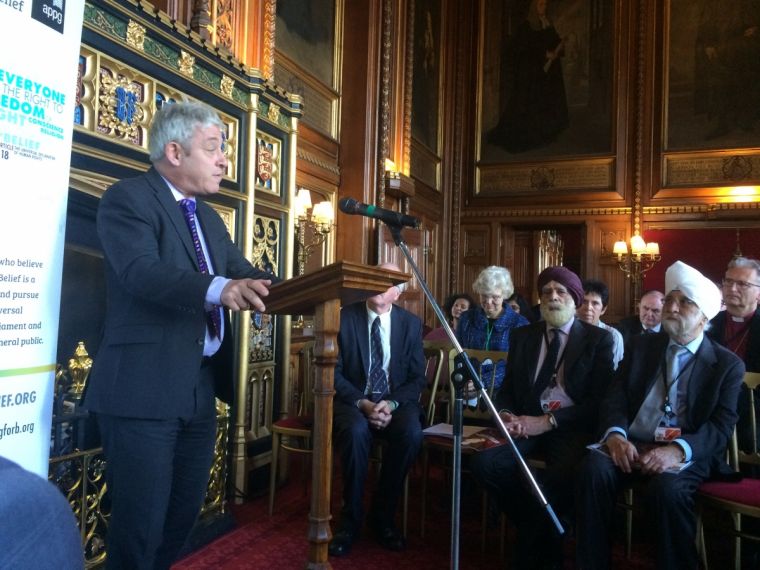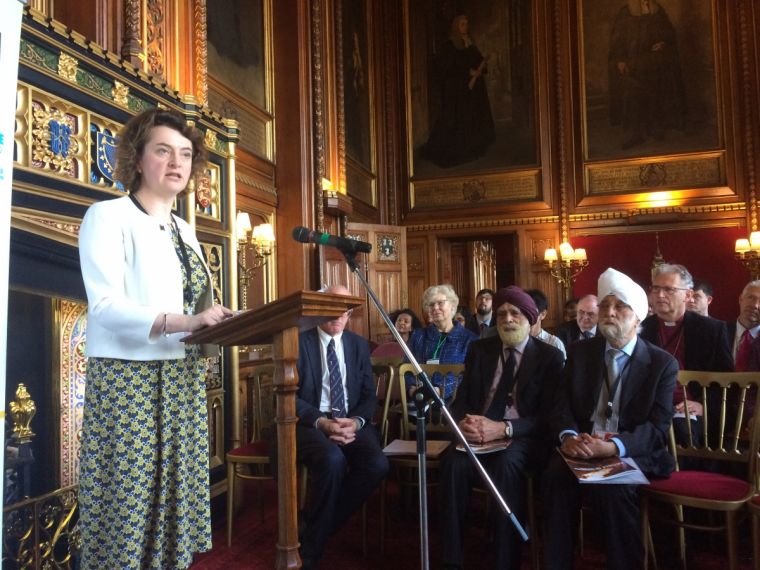Fear of religion limits UK's influence, MPs warn

A fear of religion among foreign office staff hampers the UK's fight for freedom of belief, politicians warned today.
Almost 85 per cent of the world's population are linked to a faith and more than 80 per cent live in countries with 'high' or 'very high' levels of hostilities towards certain beliefs, a report by the all-party group on international freedom of religion found.
But speaking at the launch on Wednesday in the Speaker's House in parliament, Baroness Berridge, a Conservative peer, warned ministers and aides who write policy were too nervous and badly trained to grabble with faith.
'I think it goes beyond officials,' she told Christian Today. 'I think there is a general fear among people who make policy of not understanding religion, of seeing it as only a driver of conflict and not seeing its role in development or its role in peace building. There is a lot of ignorance around about faith and I think there is a reluctant to get involved.'

She added: 'The role of faith in geopolitics and the role of religion in the majority of countries is something the northern Atlantic countries are really not experienced in.'
The Bishop of Coventry, Christopher Cocksworth, said the launch's prominence in the House of Commons' Speaker's residence was significant but echoed the concern about officials' training.
'I think it is a basic lack of understanding. That is a serious problem,' he told Christian Today.
'Until we can develop sophisticated understandings of religion that have some sort of theological confidence and I would even say — and this is the most difficult thing — spiritual empathy, we will not really be able to tackle these issues.
'I think [that comes] essentially through contact with people of another faith.'
The Archbishop of Canterbury previously said government officials often knew so little about religion they couldn't tell the difference between radical Muslims and traditional Anglicans, assuming both were a little 'bonkers'.
Many could not see the 'relevance' of religion, had 'no grip' on how people would be motivated by faith and were 'desperately trying to catch up' to understand the modern world.
He told senior teachers in Bath last year: 'The Foreign Office, the Ministry of Defence, our Government generally, is desperately trying to catch up, to understand a world in which they have no grip on what it is to be religious at all; where religious illiteracy is prevalent and extremely destructive of understanding and where they can't see really the difference between an extremist Muslim group like the Muslim Brotherhood and a sort of conservative evangelical group in a Church of England church.
'They assume they're a bit bonkers.'
Foreign office minister Lord Ahmed of Wimbledon said the FCO had implemented religious literacy training for its staff and encouraged all those serving in overseas embassies to take part — a move which Baroness Berridge described as 'a start'.
He told the report launch: 'I am confident that this is a priority but let me assure you that I am not alone. It is also a priority for our Prime Minister.'
The Article 18: From rhetoric to reality report urged Boris Johnson to make religious freedom a priority as foreign secretary.
The all-party group report says: 'There has certainly been no decrease in FoRB violations globally. Indeed, between 2013 and 2017, the situation appears to have worsened.'
The MPs add: 'There is no one type of perpetrator or victim. Belief groups that face persecution in one country may be the persecutors in others.'
Current concerns include using school textbooks containing discriminatory material and hate speech, blasphemy charges resulting in prison and death sentences and the use of anti-terrorism or extremism legislation to restrict religious group members.
They MPs for the overseas aid budget to be partially redirected to the foreign office and used to advance religious freedom.











